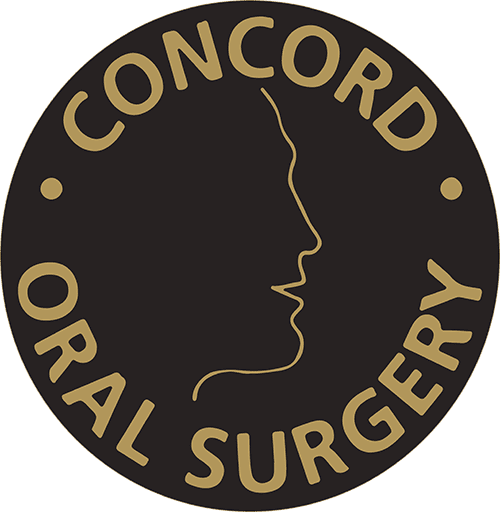Reviewed By Dr. Robert Barron, DMD
Reading Time: 5 minutes
A tooth extraction is a common dental procedure that requires proper aftercare to ensure a smooth recovery.
The first night after tooth extraction is the most critical time for healing, as your body begins the process of forming a protective blood clot in the tooth socket.
In this blog, you will learn what to expect after a tooth extraction and how to care for yourself during recovery.
Table of Contents
Key Takeaway
Expect some bleeding and mild discomfort after your tooth extraction. Rest, use ice packs, and follow your aftercare instructions to help with healing. Avoid hard foods and keep the area clean to prevent complications. If you experience severe pain or excessive bleeding, contact your oral surgeon.
The First Few Hours After Tooth Extraction
In the first 1-2 hours, bleeding ceases and a clot forms at the extraction site.
- Apply a gauze pad: Bite down gently on a fresh gauze pad for 15-30 minutes to control bleeding.
- Use ice packs: Apply a cold pack to your cheek for 10-15 minutes at a time to reduce swelling and discomfort.
- Rest in a semi-upright position: Keep your head elevated with an extra pillow to minimize swelling and bleeding.
- Avoid physical activity: Limit activity and rest to prevent increased blood flow that could dislodge the clot.
Bleeding should slow down within a few hours after extraction, but slight bleeding or a bit of blood mixed with saliva is normal.
At Concord Oral Surgery, we provide our surgical patients with aftercare instructions to follow to ensure they have the information they need on hand.
Pain Management for a Comfortable First Night
Some discomfort is expected after a tooth extraction surgery, but following these steps can help manage pain:
- Take prescribed medications or over-the-counter pain relievers as directed. Never exceed the recommended daily amount and always follow the manufacturer’s dosage instructions.
- Apply ice packs on and off for the first 24 hours to minimize swelling.
- Avoid hot foods and drinks, which can increase blood flow and slow healing.
- Avoid spicy foods, chewy foods, and acidic foods.
If you experience severe pain, excessive bleeding, or signs of infection such as swelling, fever, or a bad taste, contact your dentist or oral surgeon for advice.
Avoiding Complications: Dry Socket and Infection
One of the biggest risks after a wisdom teeth removal or any tooth removal is a dry socket. This occurs when the protective blood clot is dislodged, exposing the nerves and bone underneath.
To prevent this:
- Do not rinse or spit forcefully for the first 24 hours.
- Avoid smoking, drinking through a straw, or sucking motions, as these can disturb blood clot formation.
- Stick to a soft diet for the first few days to prevent bits of food irritating the socket.
- Rinse gently with warm salt water (1 teaspoon of salt in warm water) after 24 hours to keep the area clean.
Signs of infection include excessive pain, swelling, pus discharge, or a foul odor.
To learn more about how wisdom teeth removal can affect your appearance, check out our blog: Will Your Face Look Slimmer After Wisdom Teeth Extraction?
What to Eat: A 3-Day Post-Extraction Meal Plan
Eating the right foods can speed up the healing process and reduce discomfort. Here is a structured meal plan:
Day 1: Liquids and Soft Foods
- Breakfast: Fruit smoothies (blend banana, yogurt, and milk; avoid seeds)
- Lunch: Creamy soups (puree cooked vegetables with broth; avoid hot temperatures)
- Snack: Nutritional supplement drinks (or homemade protein shakes)
- Dinner: Mashed potatoes (boil potatoes until soft and mash with a little butter)
Day 2: Soft Foods
- Breakfast: Oatmeal (cook with milk for a smoother texture)
- Lunch: Squash soup (blend cooked squash with warm broth)
- Snack: Applesauce (store-bought or homemade by blending cooked apples)
- Dinner: Mashed potatoes with soft-cooked vegetables (steam and mash vegetables like carrots and peas)
Day 3: Gradual Transition to More Solid Foods
- Breakfast: Soft pancakes (use extra milk for a softer consistency)
- Lunch: Blended soups with soft pasta (cook pasta until very soft and mix with pureed soup)
- Snack: Smoothies or yogurt (blend with milk and avoid fruit with seeds)
- Dinner: Soft fish (bake or steam flaky fish like tilapia) or shredded chicken with mashed vegetables
Avoid sticky foods, crunchy food, chewy foods, and granular foods that could irritate the extraction site.
For a comprehensive list of soothing soft foods to help you heal after dental surgery, check out our blog: 50 Soothing Soft Foods to Help You Heal After Dental Surgery.
Oral Care for a Speedy Recovery
Keeping your extraction site clean is essential to prevent infections and promote healing:
- First 24 hours: Do not rinse vigorously or brush near the surgical site.
- After 24 hours: Gently rinse with warm salt water 2-3 times a day. Do not spit out the water, rather let it fall out of your mouth. Brush twice a day, being careful around the surgical site. Floss at least once a day, but avoid the area around the surgical site.
After a tooth extraction, a procedure called a socket preservation may be performed to help prevent bone loss and provide support for future dental implants. Learn more about this procedure here: Socket Preservation
When to Call Your Oral Surgeon
While most extractions heal smoothly, complications can occur. Contact your oral surgeon if you experience:
- Excessive pain that is not relieved by pain medication
- Excessive bleeding after 4-6 hours post-extraction
- Signs of infection like fever, chills, or a bad taste in the mouth
- Dry socket symptoms (severe pain, bad breath, empty-looking socket)
Pro Tips for a Successful Recovery
- Follow all aftercare instructions provided by your oral surgeon.
- Avoid hot liquids, hot foods, solid foods, and physical activity for the first few days.
- Prioritize rest.
- Stay hydrated and consume plenty of vitamin C to support healing.
- If you were prescribed antibiotics, make sure you complete the entire course. It is also important to know that antibiotics can affect the efficacy of oral birth control. Consider using an alternative form of birth control while taking antibiotics.
Concord Oral Surgery: Your Partners in Oral Health
If you have concerns about your tooth extraction recovery or require a tooth extraction, contact Concord Oral Surgery in Vaughan, ON to book a consultation.
To book an appointment at our oral surgery office in Vaughan, call (905) 669-2616 or complete the appointment request form. We are located at 3300 Highway 7 West, Suite 805.

